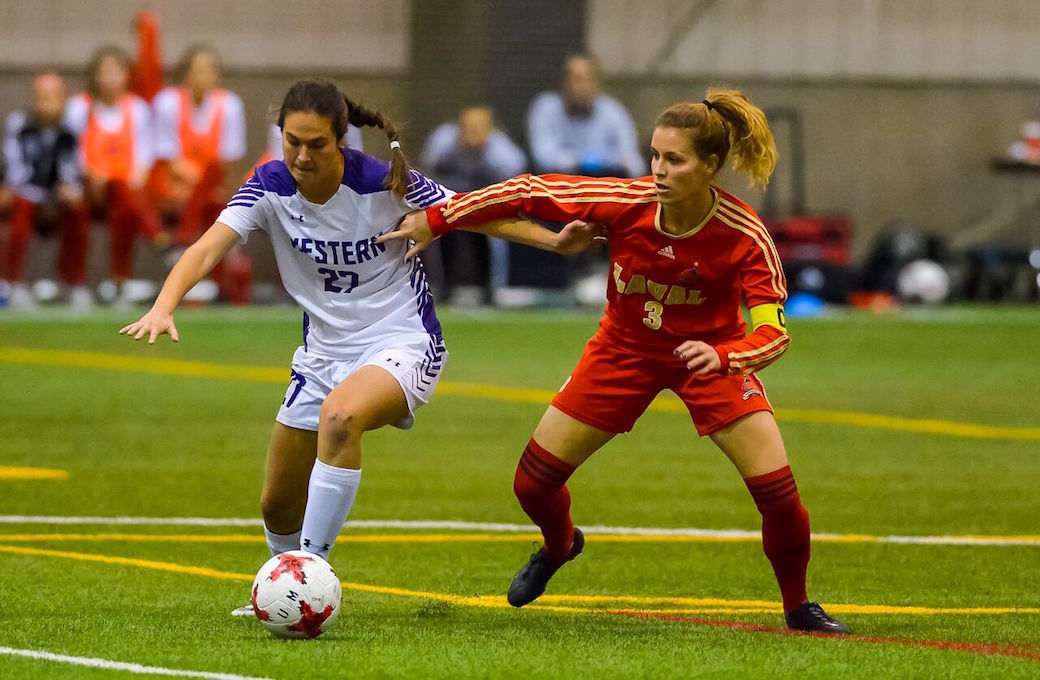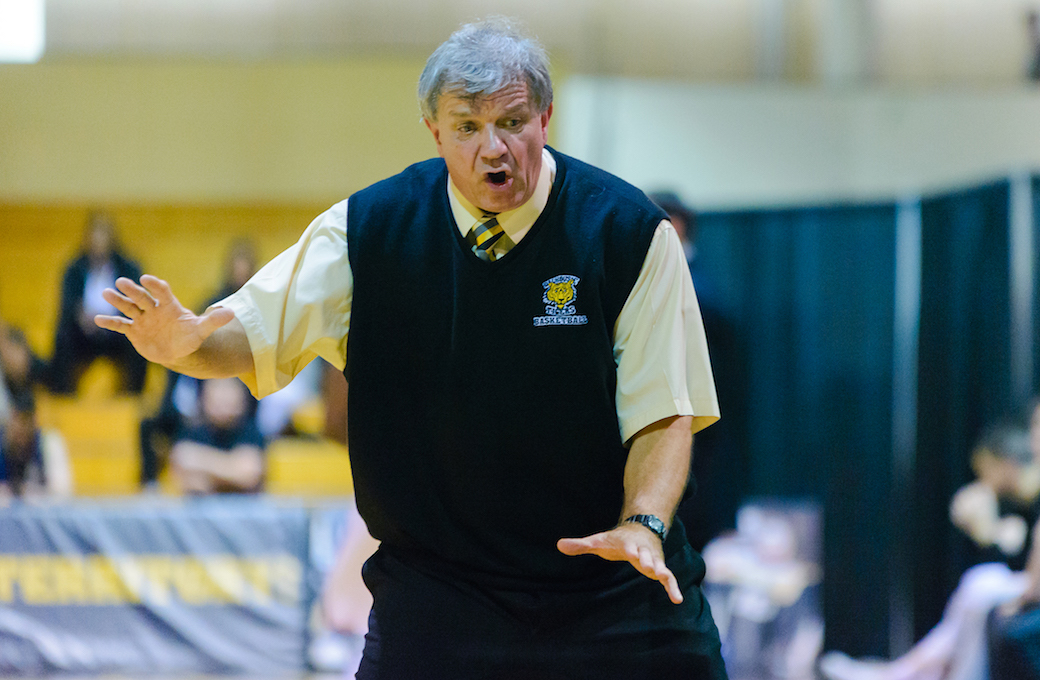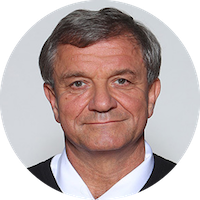Men’s Basketball
U SPORTS Top 10 launches Tuesday with new statistical format


U SPORTS Staff

U SPORTS sits down with one key athlete, coach, and staff member of each U SPORTS athletic program in our interview series “Getting to know…”

1. How did you first get involved in coaching? What was your path to your position as head coach of the Dalhousie men’s basketball team?
After graduating from Saint Mary’s, I immediately became an assistant coach under head coach Gary Heald. In that first year, 1981-82, we won the AUS and travelled to Victoria where we lost in the National CIAU Final to a solid Victoria squad. After two more years at Saint Mary’s as an assistant, I moved on to coach several years of high school basketball, and then in 1988-89 I took the position of head coach of Mount Saint Vincent University of the Canadian Collegiate Athletic Association (CCAA). After 25 years at Mount Saint Vincent and 33 years of teaching at Charles P. Allen High School, I retired from teaching and joined the Tigers for the 2014-15 season.
2. Who are the people that have influenced you most as a coach?
I would really have to start with my parents (the late Ray and Helen Plato). They instilled discipline, a solid work ethic and the motivation to succeed.
From a basketball perspective, there is really one person most instrumental in my development as a coach. That person is Brian Heaney. Coach Heaney made the decision for me to go to Saint Mary’s an easy one. I consider him to be the greatest recruiter in Canadian University history and certainly one of the most successful. He continues to be my mentor and we meet regularly to discuss various aspects of coaching, the game and just life. No question, Brian Heaney has been the most influential basketball personality in my development as a basketball coach and student of the game.
But really, the person who is most responsible for allowing me to develop and continue to coach is the person who has been there through thick and thin, through wins and losses and long flights and bus rides across the country. She takes care of all the collateral duties that go hand in hand with coaching and she allows me to just coach. That person would be my wife, Andrea. She is the backbone of the team and provides the balance and sanity which makes coaching “just a bit easier.”
3. How would you describe your coaching style?
There are a number on tenets that I believe in and encourage in my student-athletes
4. Which coach do you admire the most, and why?
There are many tremendous coaches both from the past and those who are current who are very easy to respect and admire for their accomplishments and successes. Obviously, the coach who I admire most is the man I consider my mentor and the man most responsible for bringing me to Nova Scotia. That man is Brian Heaney. Currently, when you look at the success over many years of coaches like Mike Krzyzewski, Bill Belichick, and Dave Smart, you have to really appreciate the manner in which they have been so successful over so many years.
5. What is the most “out-of-the-box” thing you’ve done as a coach?
It might not be entirely out of the box, but in a pre-season game last year, four players, including one starter were late for the pre-game breakfast, so they did not dress. Now the team we were playing, was quite formidable and had quite handily beaten two solid teams prior to our meeting. This team would go on to be nationally ranked in the regular season. So, I decided to send a message about being on time and give the younger players on the team an opportunity to show what they could do.
Well, the risky scheme could not have worked any better as we hit our first six threes in a row, and before the game was five minutes old, we were up 25-4 and went on to win by 40. It certainly sent a message about being on time and it showed the entire team that principles are more important than winning. Most importantly, it showed that no player or players are more important than the concept of the team and that you must always being accountableyou’re your actions. It worked out that we won, and even if we had lost, the exercise would have been worth the lessons learned.
6. What is your greatest coaching moment or achievement?
As far as my greatest coaching moment or achievement, there really have been many wonderful moments, but to be honest, ‘the’ moment hasn’t happened yet. It came close in March of 2017.
7. What’s the best advice you can give to an athlete and/or athlete’s parents?
The best advice that I can to a student-athlete or an athlete’s parents is pretty simple and bluntly honest. In order, the priorities are:
At an academically-demanding university like Dalhousie, discipline and academic performance are essential. The reality is any student-athlete can use basketball as a vehicle to achieve success. I tell prospective recruits and my student-athletes that there is no substitute for hard work and if you’re not working hard, somebody else is, and when they meet you, they’ll beat you. Be it on the court, in the classroom or in their professional lives.
8. How have you changed as a coach over time? What principles/values, etc. have remained the same?
Over time, I would say that I have become more of a compassionate coach. My reward as a coach is often realized by tremendous student experience for all of my players. My biggest sense of pride and accomplishment comes from watching my players graduate as men. Seeing them come in as impressionable boys and watching them grow and mature through the constant challenges, demands and accomplishments that they never knew they were capable of achieving is so rewarding. Success in the real world, leaders in society and the community, being intrinsically motivated to give back - these are but a few of the principles and values that I strived to achieve in 33 years of teaching and some 37 years of coaching. I push my players because I care. One day, after my students and players have long left my guidance and direction, this is the thought and realization that I hope many have.
9. What do you enjoy doing when you’re not in coaching mode?
When I am not coaching or in the coaching mode, I am a hermit. I have said for years that teaching and coaching, makes you anti-social. When you teach and coach, you are constantly on stage. You are always on. There is very little down time. I am a very goal-oriented person, and at a young age, I always knew I wanted. A log house, in the woods, on a lake. Well, that’s me. I live in the woods, in a beautiful log home designed by wife, Andrea. It is on the lake, and I garden, enjoy the tranquility and solitude of the lake. One day, it is where I hope to write. I already have several ideas.
10. What’s the most embarrassing thing that’s ever happened to you as a coach?
Well, in my youthful, more intense days as an aspiring coach, there was a game where the refereeing (at least as I saw it) was particularly questionable. I eyed the scorers’ table, and I thought that I knew the soft spot on that table. As I had done a few times in the past, I went to “gently” whack that “soft centrered table.” Unfortunately, this table (unlike other tables), had a steel bar running through it, a steel bar that I didn’t see. As soon as I hit that table with my fist, I knew something was wrong. A broken hand and cast for the next several weeks were the price I paid for being a petulant knucklehead. Explaining the cast, certainly was a cause for embarrassment, but also served as valuable learning experience.
Men’s Basketball
Andrew Bucholtz
